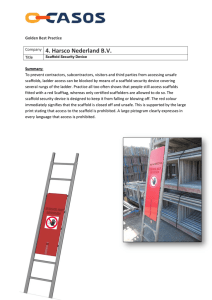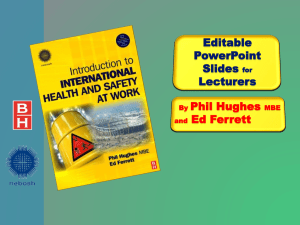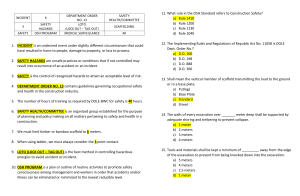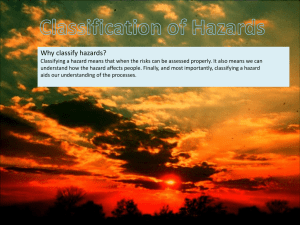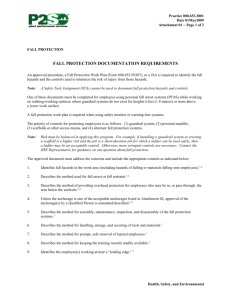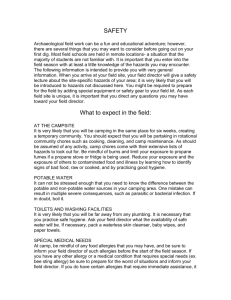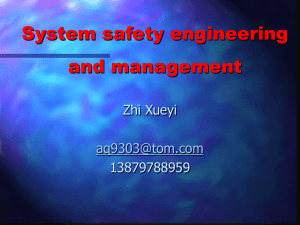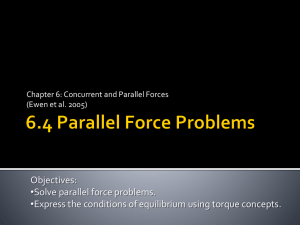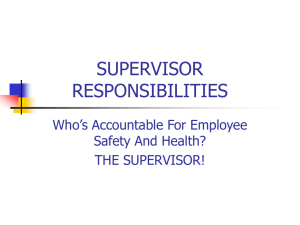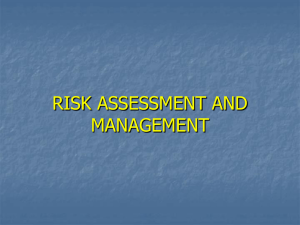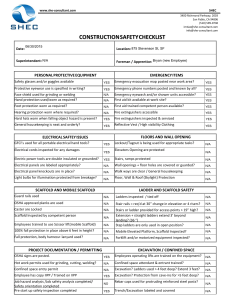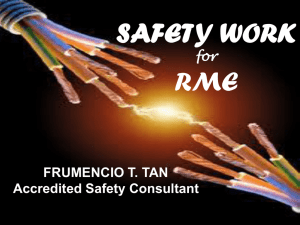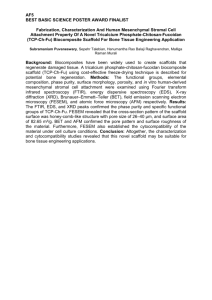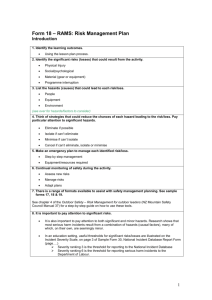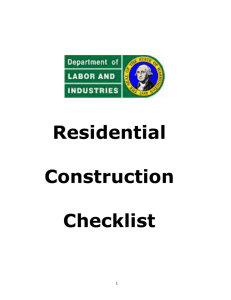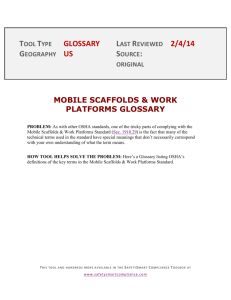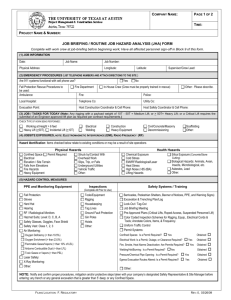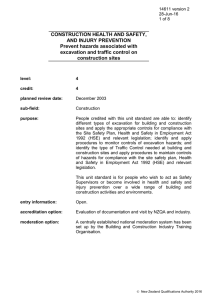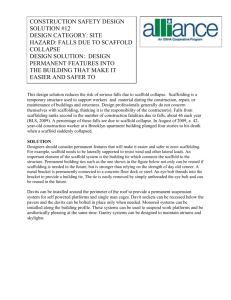Chapter 16
advertisement
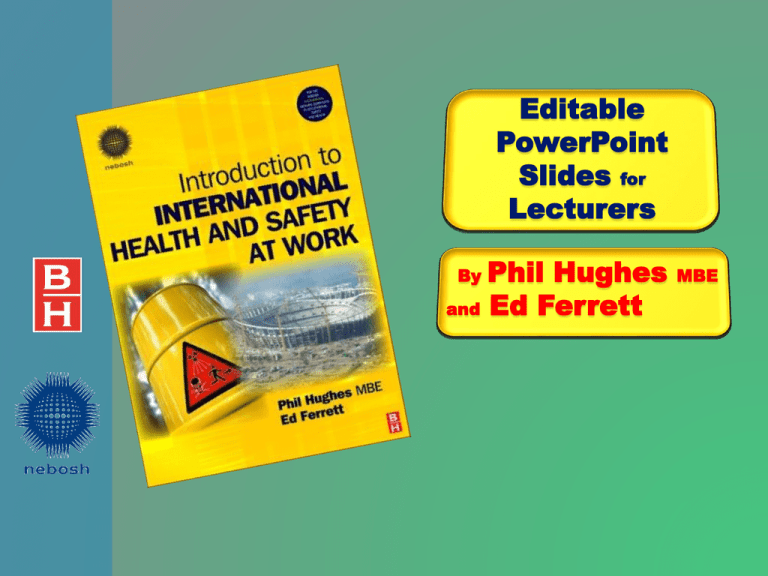
Editable PowerPoint Slides for Lecturers Phil Hughes and Ed Ferrett By MBE Chapter 16 Construction activities – hazard and control Construction activities – hazard and control After reading this chapter you should be able to: 1. identify the main hazards of construction and demolition work and outline the general requirements necessary to control them 2. identify the hazards of work above ground level, outline the general requirements necessary to control them and describe the safe working practices for common forms of access equipment 3. identify the hazards of excavations and outline the general requirements necessary to control them 4. identify the hazards to health commonly encountered in small construction activities and explain how risks might be reduced Co-Figure 1 Secure Construction site access gates Figure 16.1 Secure construction site access gates Figure 16.2 Proper precautions must always be taken when working on or near fragile roofs Figure 16.3 Barriers around excavation by footpath Figure 16.4 Welfare – washing facilities – large enough to wash forearms Figure 16. 5 Waste removal at a French quayside Walkway for pedestrians Working on pavement with inadequate protection from vehicles Figure 16.6(a)(b) Contractors Working on the public highway Figure 16. 7 Ladder showing correct 1 in 4 angle (means of securing omitted for clarity) Figure 16.8(a) - (d) Various ways of securing a ladder Figure 16.9 Use of a stepladder Figure 16.10(a) Typical independent tied scaffold Figure 16.10(b) fixed scaffold left in place to fit gutters Figure 16.11 Typical prefabricated tower scaffold Mobile elevating work platform – scissor lift Truck mounted Mobile elevating work platform Figure 16.12 Mobile elevating work platforms MEWPs Figure 16.13 Timbered excavation (guard removed on one side for clarity)
